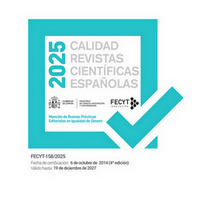Republican Cuba and Francoist Spain, a Cultural Embrace, 1948–1958
DOI:
https://doi.org/10.24197/ihemc.38.2018.451-478Keywords:
Instituto de Cultura Hispánica, Instituto Cultural Cubano-Español, Cuba, Francisco Franco, Cultural diplomacyAbstract
The creation of Havana’s Instituto Cultural Cubano-Español (ICCE), a branch of the Institute of Hispanic Culture in Madrid, ushered in a new phase of cultural relations between Cuba and Francoist Spain, an era of rapprochement that remained viable until after the triumph of the Cuban Revolution of 1959. The ICCE provided associative spaces that became the cultural laboratory for transferring Francoist ideas, like cultural Catholicism, to the “ever faithful island of Cuba” and offered Franco’s government a vehicle to break through international isolation by building an intellectual consensus that united the historical, ideological, and political interests of both countries.
Downloads
Downloads
Published
Issue
Section
License
All the articles published in Investigaciones Históricas, época moderna y contemporánea will have a Creative Commons Attribution 4.0 International License (CC BY 4.0).
The journal allows the authors to retain publishing rights. Authors may reprint their articles in other media without having to request authorization, provided they indicate that the article was originally published in the journal Investigaciones Históricas, época moderna y contemporánea.



